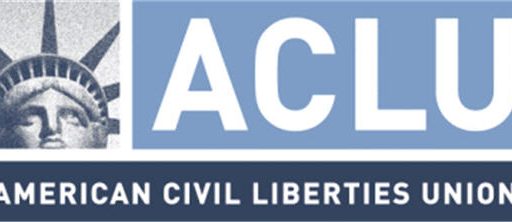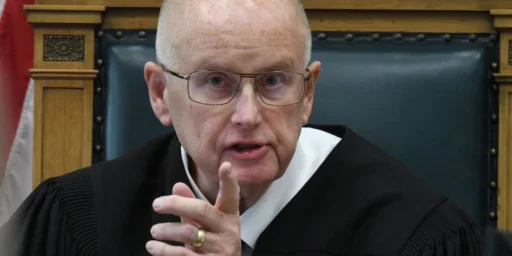1ST AMENDMENT FALLOUT
As WaPo notes, yesterday’s SCOTUS ruling that the Constitution’s dictate,
Congress shall make no law respecting an establishment of religion, or prohibiting the free exercise thereof; or abridging the freedom of speech, or of the press; or the right of the people peaceably to assemble, and to petition the Government for a redress of grievances.
is merely a guideline that can be overturned by legislation has drawn fire from all sides.
It’s not every day the National Rifle Association and the American Civil Liberties Union are outraged by the same Supreme Court decision.
The two organizations are often used to represent opposite poles of American politics, the gun-toting right and the liberal left. But both groups hated yesterday’s unexpectedly broad ruling by the court to uphold the major provisions of the McCain-Feingold campaign finance law.
Reformers have been trying to squeeze the influence of money out of politics for at least 100 years, but yesterday’s ruling was either one of the boldest steps yet or a terrible overreach, depending on which side was analyzing the case. Surprise at the scope of the ruling was just about universal, however. Even many proponents of the campaign finance law had expected the court to use the First Amendment to strike down new limits on political advertising on television.
But the prevailing justices — with Justice Sandra Day O’Connor in the decisive role, as she is so often — cast a deeply disgusted eye on the entire political process, finding “corruption, and in particular the appearance of corruption” almost everywhere they looked. Even efforts by political parties to register voters, identify supporters and urge them to the polls — activities once extolled in civics classes — were seen as opportunities for corruption if large donors were allowed to pay for such projects as a way of currying favor with elected officials.
The problem with critics of the law, the majority declared, is that they “conceive of political corruption too narrowly.”
This attitude took the 5 to 4 majority well beyond earlier limitations on political advertising, in the judgment of several First Amendment experts. And so a broad range of advocacy organizations denounced the decision as a historic attack on the right to free speech. Under the ruling, groups wishing to use television ads to criticize — or even mention — federal candidates in the decisive months of an election year must comply with an array of regulations before they can say their piece.
“The notion that the government can tell an organization like the ACLU when and how it should address important civil liberties issues is a form of censorship masquerading as campaign finance reform,” ACLU Executive Director Anthony D. Romero said in a statement reacting to the ruling.
Wayne LaPierre, head of the NRA, called the ruling “the most significant change in the First Amendment since the Alien and Sedition Acts of 1798, which tried to make it a crime to criticize a member of Congress.”
This may be a bit far. Under the current law, it’s perfectly fine to criticize a member of Congress–unless an election is drawing near and the criticism might result in his actually being replaced. Fortunately, we only have federal elections every two years, so we have free speech for 22 of every 24 months. Well, actually, it applies to primaries too. So, 21 of 24 months. Being free 87.5 percent of the time isn’t so bad, I guess.






I am afraid to speculate just what additional damage the current court is going to do to this country. Also, it’s going to be very interesting to watch how this law is going to be enforced. It seems to me that late night TV monologues are going to be a legal minefield as to what is political and what is a joke. Of course, I might be reading this all wrong.
I-P,
In fairness, the Court is merely being negligent in its duties. Congress actually enacted this monstrosity. So, this isn’t an activist Court striking down the will of the people but rather a timid Court failing to do its duty.
—